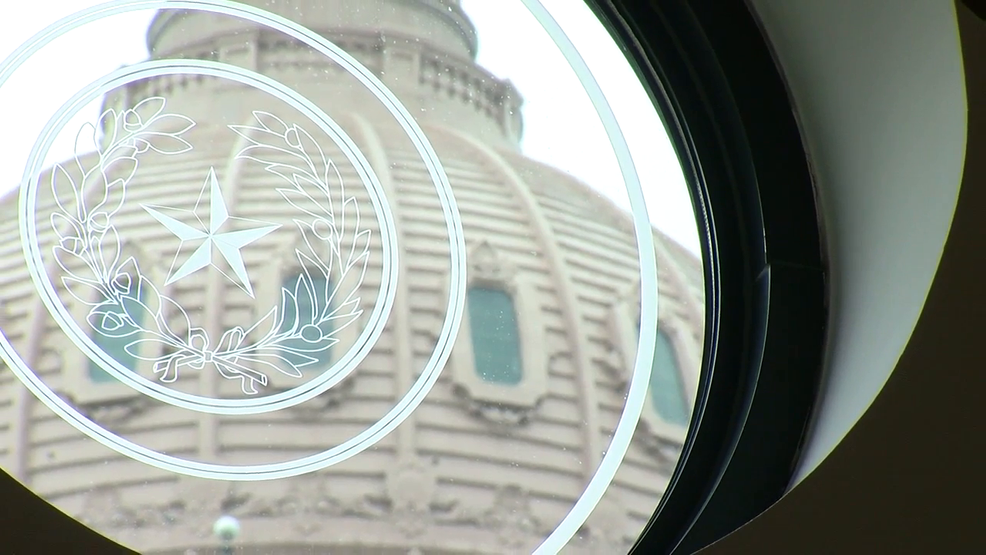
AUSTIN, Texas — New whistleblower claims are alleging thousands of Texans are going hungry after being denied aid from the Supplemental Nutrition Assistance Program, commonly known as SNAP or food stamps.
The accusations stem from anonymous Texas Health and Human Services Commission (HHSC) employees who say delays in processing applications are resulting in hefty backlogs.
The situation is a continuation of a report CBS Austin’s Paige Hubbard previously did when HHSC whistleblowers revealed millions of Texans were being wrongfully removed from their Medicaid coverage.
RELATED| Texas Democrats demand federal probe into wrongful Medicaid coverage terminations
Because of that issue, U.S. congressman Lloyd Doggett, D-Austin stepped in and called on the Biden administration to act quickly. Now, additional concerns about Texas families not receiving food assistance are being brought to his attention.
“I considered it a great contradiction this past week when Governor Abbott was out with Meals on Wheels, delivering a handful of meals for Thanksgiving at the same time that his administration was denying 1,000 people the federal food assistance to which they were entitled,” said Congressman Doggett.
Congressman Doggett says under Texas Governor Greg Abbott’s watch, Texas HHSC is failing to follow federal requirements in processing SNAP benefits.
In a letter to the governor, whistleblowers highlighted these concerns.
“ The whistleblowers told us in August, they told their administrators there’s a 75-day wait, and you need to do something. By September it was a 100-day wait. By November, it’s a 180-day wait. They predict it will be 200 by next month in terms of days of delay. That ought not to be happening,” Doggett said.
In a statement, Texas HHSC tells CBS Austin that after pandemic-era assistance ended, a redetermination process kicked in, which is making the turnaround time higher than normal.
“HHSC is moving aggressively to implement additional strategies to increase staffing capacity to reduce the number of SNAP applications in the queue,” the state agency wrote in part.
“My office is working with the Texas Health and Human Services Commission to make sure that they fix any problem that’s causing any delay whatsoever because we want to make sure that the people who are eligible for SNAP are going to be getting the food that they deserve,” said Governor Abbott on Thanksgiving Day when asked about the SNAP backlog.
A spokesperson from Governor Abbott’s office says part of the problem is the majority of backlogs are from people applying for both SNAP and Medicaid benefits.
Because of this, Abbott’s office says the HHSC plans to move 250 staff members from other projects to expedite applications. They’ll also cross-train 600 employees on Medicaid coverage to address combined applications.
Congressman Doggett says Abbott’s words sound good, but whistleblowers followed up on Abbott’s public statement, telling him those employees are the same people who are supposed to be processing Medicaid applications, which Doggett says has an even longer backlog than food assistance.
“So, I think that what we got was a good photo op for the governor and a lack of action to address the needs of disadvantaged Texans to not go hungry, and not go without access to a family physician,” Doggett said.
Celia Cole, the CEO of Feeding Texas says until then, food banks and pantries are serving those waiting months for food assistance, on top of the people already depending on those resources.
“It is putting a strain on our resources. And I think it’s important to note that food banks were already struggling,” said Cole. “We need to prioritize eliminating the backlog and getting people food assistance that they qualify for. It’s unacceptable that people are going hungry in this state.”
On Wednesday, Congressman Doggett met with the U.S. Department of Agriculture to review a 62-step corrective action plan.
After going through the drafted plan, Doggett tells CBS Austin, “Under Greg Abbott’s indifferent leadership, thousands of Texans are being denied SNAP food assistance for months. This draft corrective action plan is more a summary of Abbott’s failures than a roadmap for progress. It mostly recites prior actions shown to be inadequate rather than new corrective initiatives. We already know the result of Abbott’s failures: delays, backlogs, hungry families, and overburdened food banks. What’s long overdue is a comprehensive plan with clearly articulated benchmarks that the state must meet and immediate adoption of every available tool to deliver relief quickly to families.”
More Information on SNAP Benefits from the Texas Health and Human Services Commission:
In October, 74.23% of SNAP applications were processed within 30 days, and 87% of SNAP expedited applications were processed within the federal timeliness standard of 7 days. Federal guidance requires HHSC to re-determine eligibility for six million Medicaid clients over the course of 12 months. Due to the redetermination process for all Medicaid clients and the processing of an increase in SNAP applications, our lead time is higher than normal. As of November 22, there were approximately 138,000 uninitiated SNAP applications submitted more than 30 days ago.
As of October 2023, HHSC reports there are 3,336,746 individuals enrolled in SNAP.
“In an effort to increase staffing levels, HHSC has implemented workforce recruitment and retention initiatives including job fairs, on-the-spot interviews at local offices, flexible work arrangements, and pay increases. While we do experience turnover, our annualized turnover rate this year is significantly lower than last year. We have also augmented our training capacity by leveraging technology, strengthening the quality of the virtual learning products and scheduling, and standardizing On-the-Job Training to promote accelerated readiness for independent casework. HHSC has reduced eligibility advisor vacancies from 21.2% in March 2022 to 3.67% as of Nov. 2. In August 2022, HHSC increased base salaries for clerks, eligibility advisors, and supervisors. Frontline eligibility advisors received up to a 25% salary increase, which has improved retention among current staff and strengthened recruitment efforts to further boost eligibility operations capacity,” HHSC wrote to CBS Austin.
